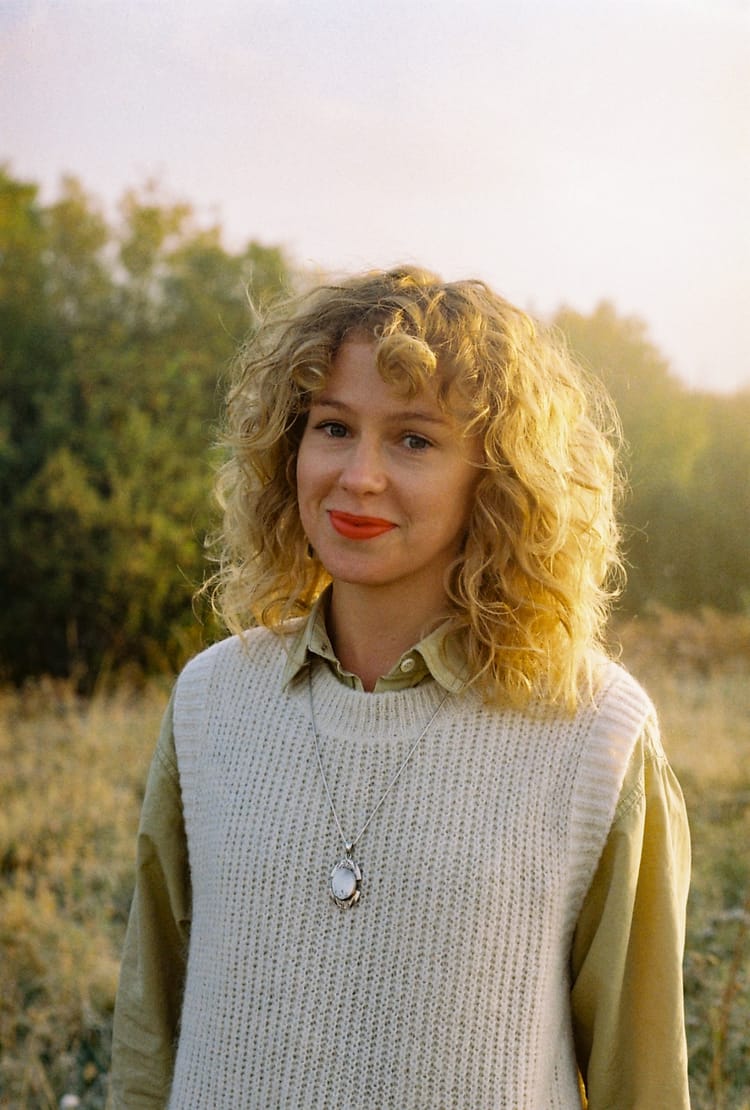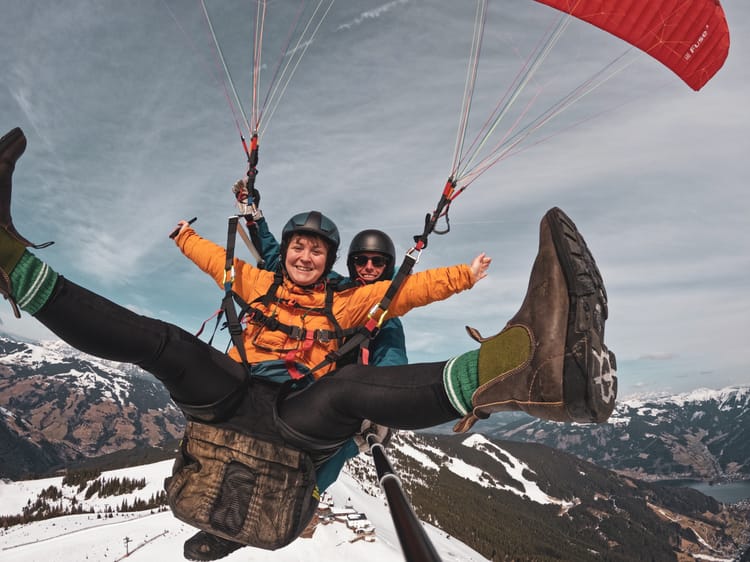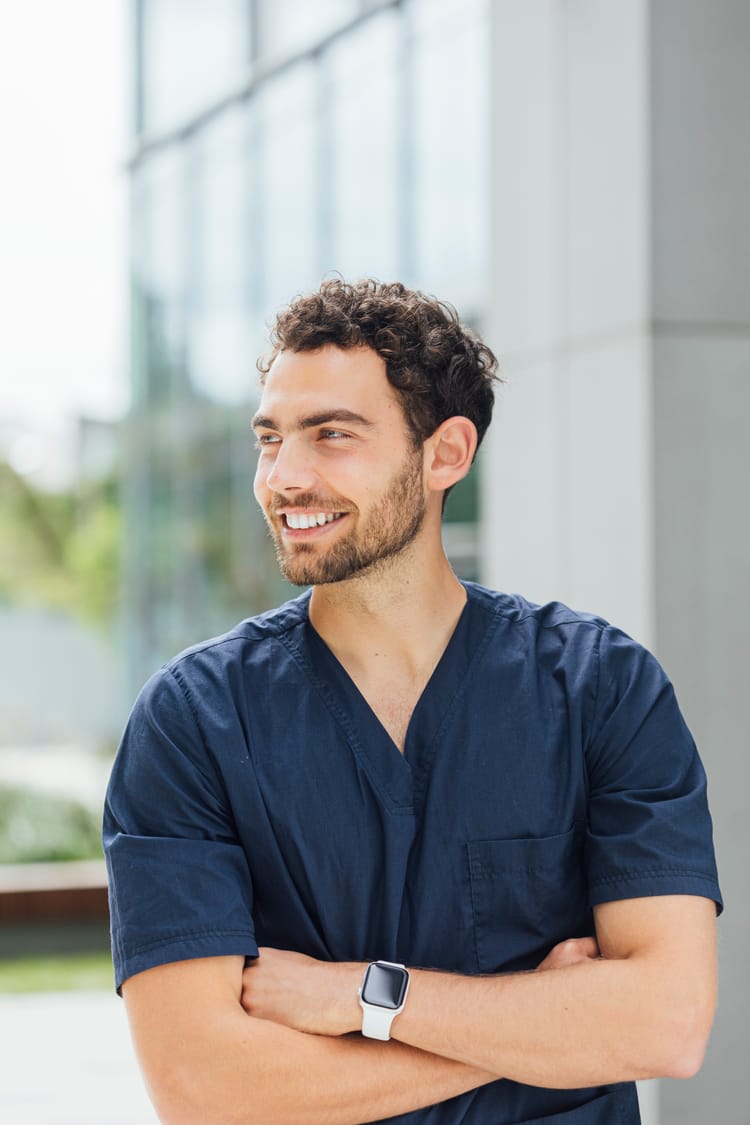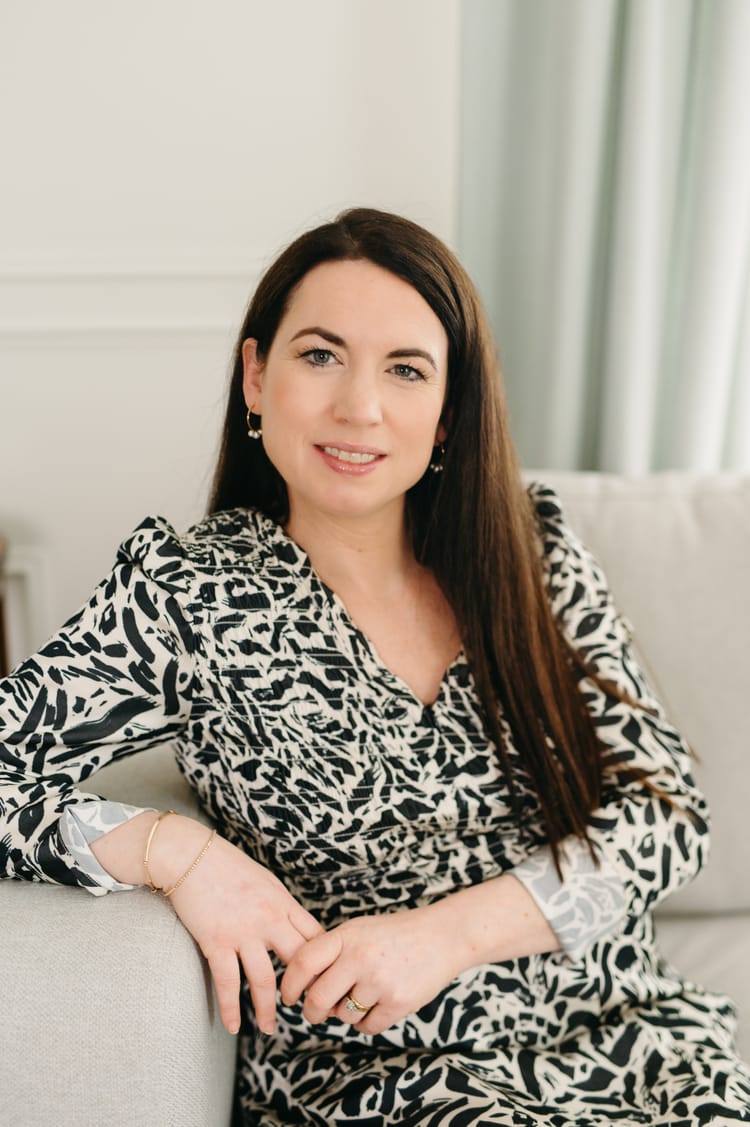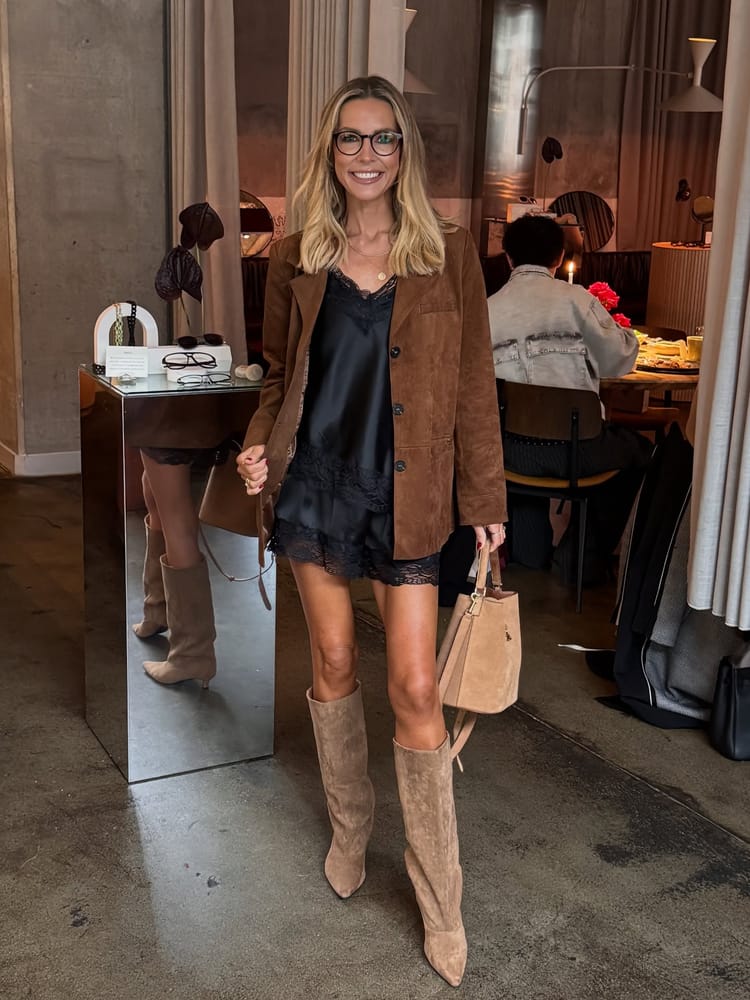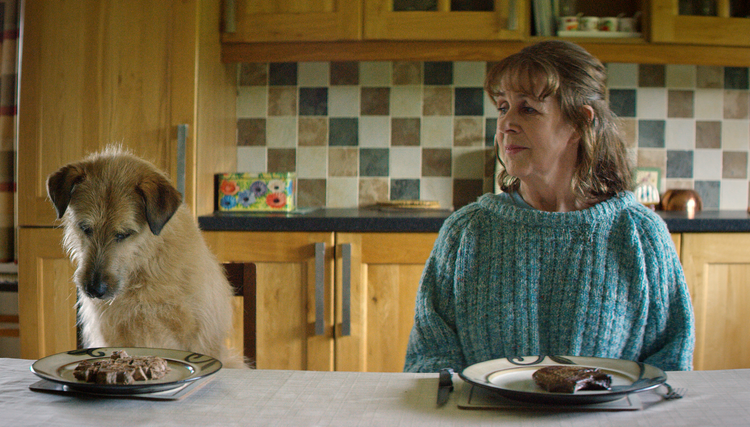Galway Comedian Aoife Dunne On Her Whirlwind Year
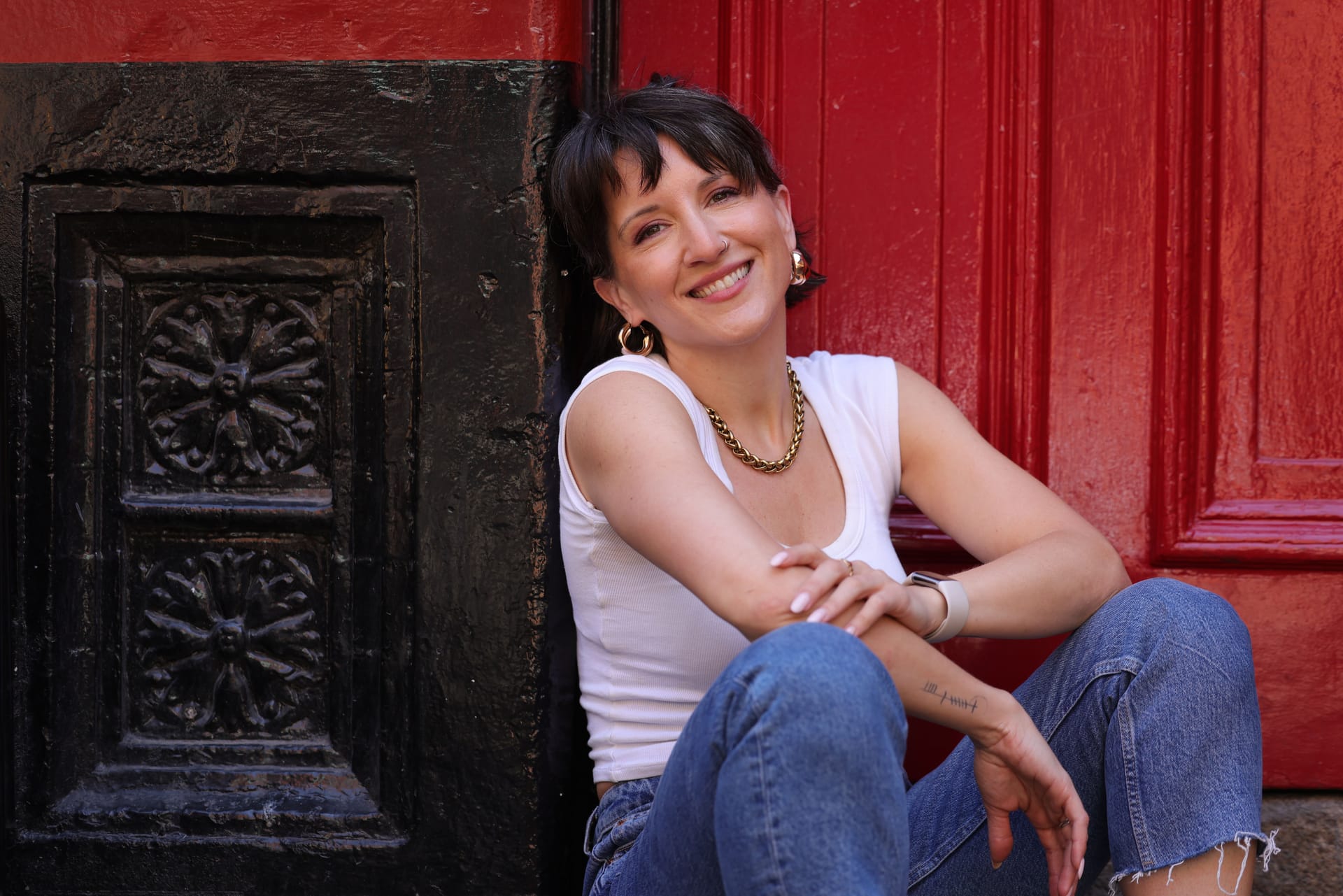
Ten years ago, Aoife Dunne had no idea that she would be doing what she does now for a career. Navigating many of life’s tragic and unexpected turns in her twenties, the comedian and poet has found her purpose in her thirties and turned those tragedies into material.
Regarded as one of Ireland’s most exciting new comedy voices, Aoife will take to the Pálás stage from the 21st-27th of October as part of Galway Comedy Festival. We catch up with her ahead of the busy week.
Tell us about Aoife as a child. Did you always have a creative side that you wanted to express?
I did the thing that most middle children do and wanted to perform to get attention.
I was a child who hung off my mom. I think being on stage was a way for me to pretend to be confident. I was quite a nervous child, and I still am quite an insecure adult. So discovering the stage was great for me.
I remember my mom putting €1.50 into my hand when I was little to attend a local pantomime group, and that was all it cost, which is crazy. We put on these amazing pantomimes in our community in Galway, and I’m so grateful to have grown up with that. My mom was a single parent of four kids, and there’s no way she would have been able to afford to send me to acting classes. But growing up in this community with local artists, I loved it. Once I discovered the stage, I didn’t want to do anything else.
What would Aoife in her 20s think of Aoife now?
I would not expect to be doing what I am now. I think the beautiful thing about children and young people is that we can be so sure about what we want. And then at some point along the way, that gets lost. Maybe it’s when we go to college and reality sinks in like, "Oh, I’m not rich enough for this, or I’m not connected enough." And that’s what happened to me.
I remember I went to London when I was 19 with my local youth theatre because we'd won a competition to present our show. I was in the green room with all these young 20-year-olds who were asking questions like: “So did you study at RADA or LAMDA?” And my answer was “Galway Youth Theatre”. I felt so stupid when they didn’t understand.
I looked at their clothes compared to mine, and I realised that I came from a totally different background, which would make being a successful actress harder. When my mom passed away in my twenties, I was like, “Okay, I don’t get to have the things that I want in life”, and I held onto that mindset. I believed that good things don’t happen in my life, and I won’t get to follow my dreams.
I studied with Nicola Coughlan, and she never let go of her dreams, which I really respect. I saw her career start to take off, and I thought, “Good for her, that’s stuff that happens for people like her, but not me”. The other day I was writing a letter to 23-year-old me, the age my mom passed away and in it I told her that you won’t believe what you’re doing in 15-years-time. It feels very full circle.
How would you describe what you do? It’s more than just comedy.
I'd say the best word is storyteller. I don’t really work off a script when I’m on stage, which a lot of people can’t get their head around. But I know my stories, because they live inside me. I studied at a storytelling school in Amsterdam for six months last year, and they commended me for being able to store all of my stories in my head and relay them whenever.
The stories might come out a little differently each time, but whatever way it comes out on the night is how it was supposed to be told. I think Irish people are great at that, it’s like a seanchaí, that’s how I like to look at my work.
Your debut solo show, ‘Good Grief’, largely explores the topic of losing your mother at the age of 23. How do your life experiences influence your material?
In my material, I pull from all of my experiences and memories, because I have so many of them. Goof Grief is about grief of all kinds of grief – the grief of not having the life that you wanted in your twenties, or not being able to study what you wanted, or the boyfriend and the kids or the family you wished for. It’s about life and the grief that brings, which forces you to choose another path.
It’s nice to be able to make the worst things that happen to you into art, and to help other people.
But even in all of that, there’s friendship and connection and joy to be found even in the darkest of times. I think it’s nice to be able to make the worst things that happen to you into art, and to help other people. That’s really beautiful.
How did growing up in Galway influence you?
I tell this story as part of my set, but neither my Mom or Dad are from Galway originally. They were living in Dublin in the late 80s and decided they wanted to move somewhere safer to raise us. They’re both mad hippies, too, so Galway was the perfect place for them. I grew up in Kinvara, which is only 30 minutes outside the city. It was a lovely place to grow up and go to college because it was small and safe. I had a rude awakening when I left Galway because it was this lovely cocoon that I lived in.
Galwegians are such amazingly humble people. I always say that I didn’t know I was poor until I moved to Dublin in my 20s. At that time, anyway, there was no real class distinction. Nobody cared what your parents did or the private school you went to. Nobody asked those questions. Rich, poor, it didn’t matter; we were all the same. Growing up, we were on welfare. I received welfare for school books and uniforms, but I genuinely didn't know it for a long time. I'm so grateful that I grew up in a city that wasn't so fragmented and obsessed with wealth.
Describe your perfect Galway day
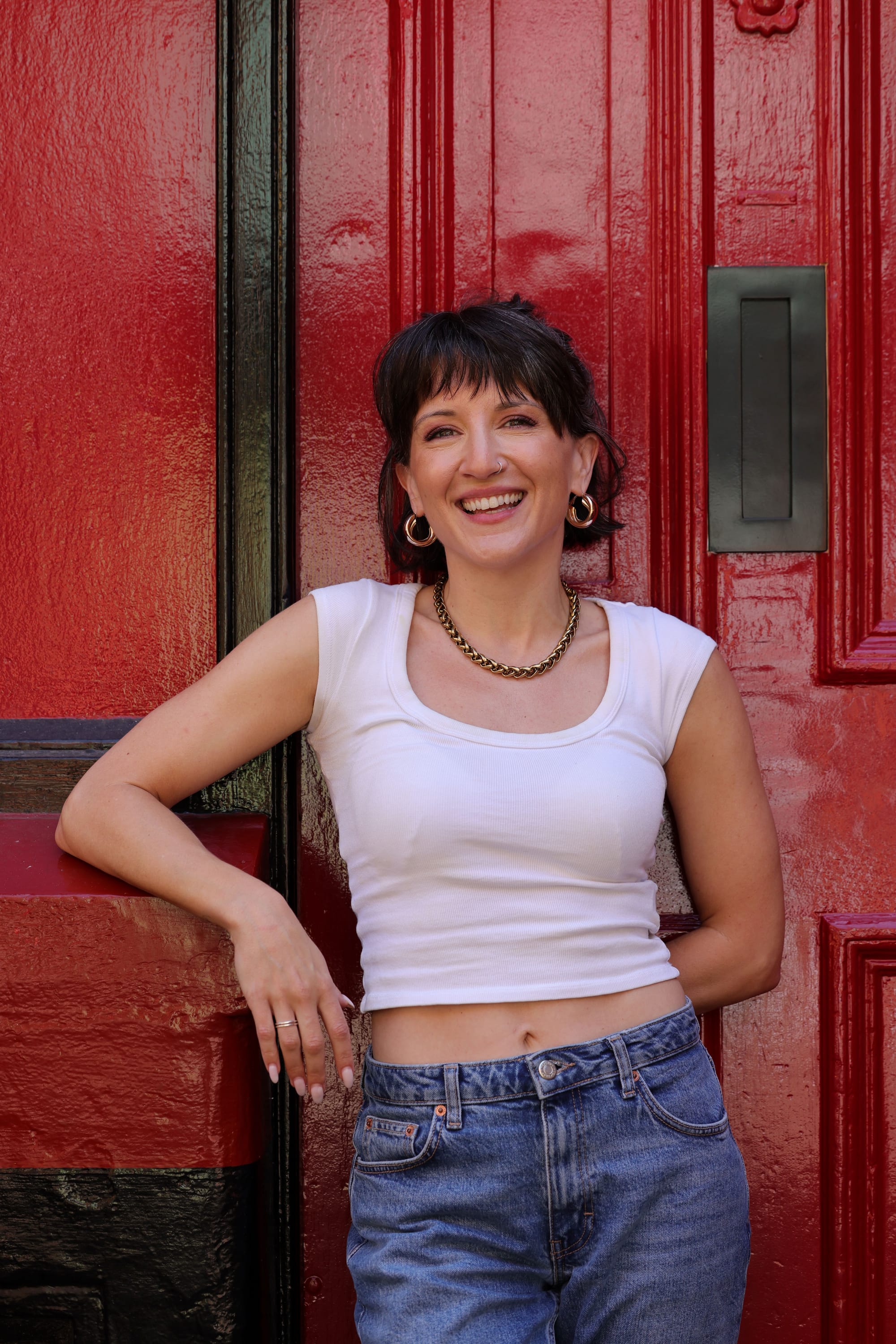
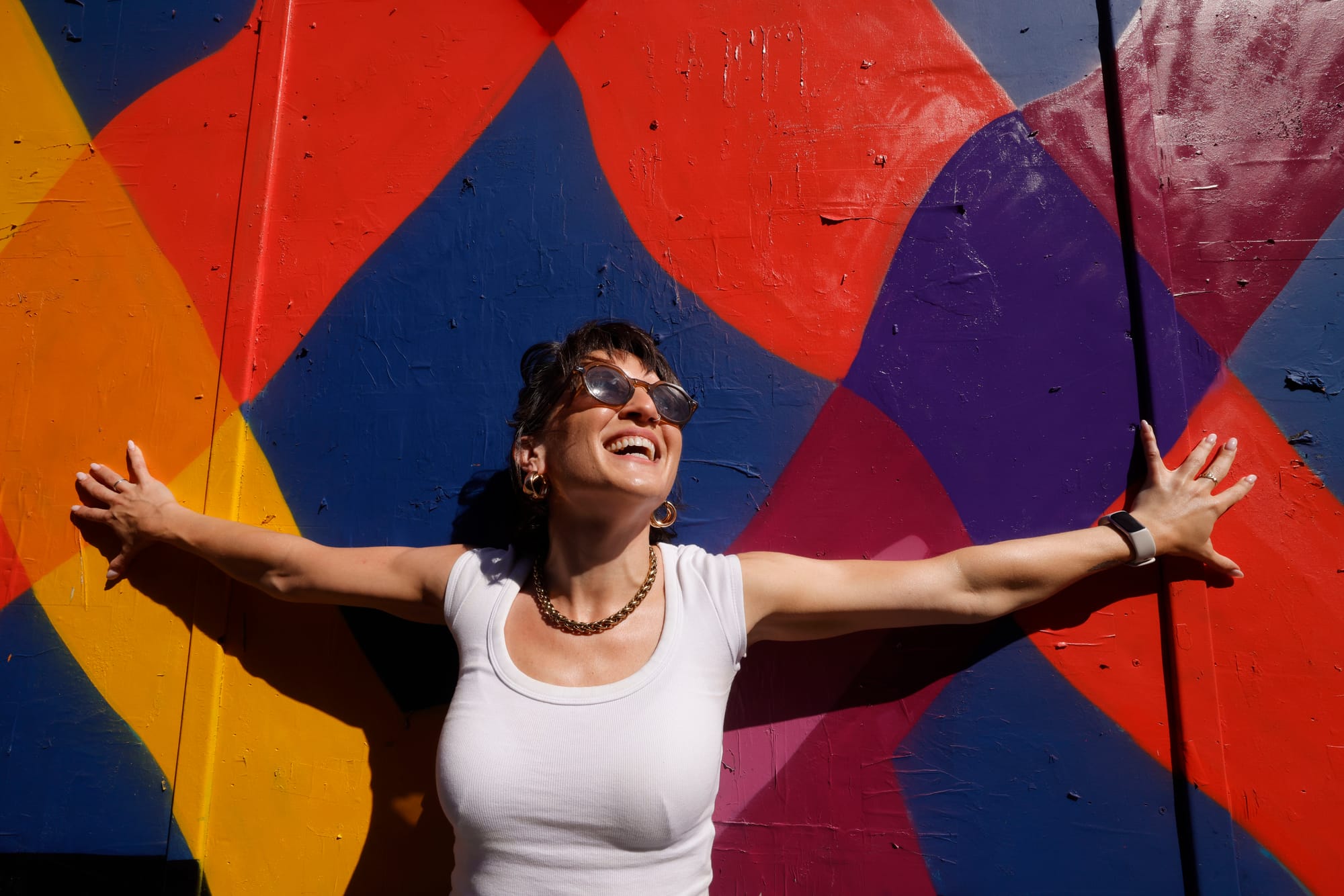
The perfect day in Galway is having no plans. You can't have a plan in Galway because you have to be prepared for anything to pop up. I would wake up with no set plans and head to The Universal for breakfast. Then I'd walk to Salthill and go for a swim. To warm up, I’d go for a pint in Salt House and sit outside to watch the world go by and then maybe another cheeky pint in Tigh Neachtain’s. In between all of that, I’d be waiting to bump into someone for something great to happen. If it were a Saturday, I’d have a stroll around the food market near St. Nicolas’s Church before heading to The Crane Bar for some live music. Depending on who’s out, I’ll either head home or find people to get up to some no good.
Your social media videos and skits have been growing rapidly recently, with one of your videos reaching 1.2million views. Do you get recognised more now?
This last year has been a game-changer for my career. I went for a coffee in Dublin the other week and had four people stop me in the space of an hour. I really noticed that things had shifted when I was at Beyond The Pale this year.
I have been going most years since the festival started, and people would rarely come up to me, but this year I was stopped a lot. At one point, it was like 20 times in one day, people had stopped to ask for a photo. My friends were asking, “So, are you famous now?” and I was like, “Yeah, I don’t know, I think so!”.
With a growing following, more online hate can roll in. How do you handle that?
I don’t really tolerate much hate online. It’s mainly men who comment hurtful things on my posts. I will share hateful comments on my story, tagging the people who said it. Or if it’s particularly bad and the person’s page is their personal one, I will look into their workplace and take things further there. I was a teacher for years, and I never accepted my students saying anything, so why would I allow a grown adult to?
What’s next for you?
I never have ‘5-year plans’ because my past has taught me that you never know what’s coming. For example, five years ago, I was moving out of my house with my boyfriend, who had just broken up with me a few months before, and I couldn’t afford to rent alone. I moved in with a stranger’s box room in the middle of the pandemic, and I had lost my job teaching English. So if five years in the line, you were like, oh, you have your own successful show and everything else, I wouldn’t have believed you.
Now I approach life with dreams on the back burner, but quietly working toward them. I would love to write a TV show. I think Good Grief could be a TV show. And I also think there’s a book in me. I would love to tell other people’s stories in some capacity, too, because I’m getting sick of writing about myself.
Don't miss Aoife at this year's Galway Comedy Festival.
Delivered straight to your inbox every month.

